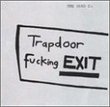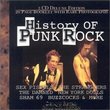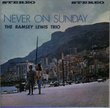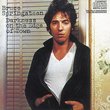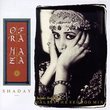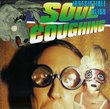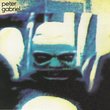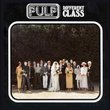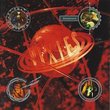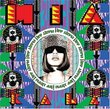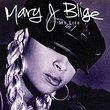| All Artists: Randy Newman Title: Good Old Boys Members Wishing: 7 Total Copies: 0 Label: Warner Bros UK Release Date: 10/25/1990 Album Type: Import Genres: Alternative Rock, Folk, Pop, Rock, Classic Rock Styles: Indie & Lo-Fi, Singer-Songwriters, Oldies, Album-Oriented Rock (AOR) Number of Discs: 1 SwapaCD Credits: 1 Other Editions: Good Old Boys (Bonus CD) (Dlx) UPCs: 075992721424, 075992721417, 075992721448 |
Search - Randy Newman :: Good Old Boys
 | Randy Newman Good Old Boys Genres: Alternative Rock, Folk, Pop, Rock, Classic Rock
Deluxe remastered reissue of 1974 album including 'Rednecks', 'Louisiana 1927' & 'Marie'. Plus a bonus disc featuring the 13-song Johnny Cutler's Birthday, the previously unissued 'rough draft' of this 1974 classic.... more » |
Larger Image |
CD DetailsSynopsis
Album Description Deluxe remastered reissue of 1974 album including 'Rednecks', 'Louisiana 1927' & 'Marie'. Plus a bonus disc featuring the 13-song Johnny Cutler's Birthday, the previously unissued 'rough draft' of this 1974 classic. The 2 discs are housed in a double slimline jewel case and a slipcase. 2002. Similar CDs
Similarly Requested CDs
|
CD ReviewsClassy reissue with an incredible bonus disc Christopher Zayne Reeves | Columbus, OH | 11/24/2002 (5 out of 5 stars) "Listening to Johnny Cutler's Birthday, it is amazing to learn that a true masterpiece such as Good Old Boys could have been a different record and that the record that was not made is as funny, scary and heartwrenching as the one that was. The scope of Good Old Boys turned out to be much broader than was originally intended with the demos on the bonus disc and encompassed not only colorful eccentrics who inhabit the South but also its own vital history that has always been viewed (by both sides) as seperate from that of the North. For Johnny Cutler's Birthday, the focus is entirely on the "unreliable narrarator" (a Newman motiff), his family and immediate surroundings. Many of the songs from Good Old Boys are present here; Rednecks, Marie, Birmingham and Louisiana 1927 among others. But the songs that did not make it to the released album are astonishing in how they flesh out Cutler and his wife, Marie, into two of the most tragic and strangely beautiful characters in the history of popular music. My Daddy Knew Dixie Howell is a chilling song that begins as a drunken birthday toast to gathered friends by Cutler. He starts by promising to "tell you all the story of my life" and proceeds to eulogize his late father and the story he tells becomes more sinister with each passing verse. It's a revelation for someone who only knew of this character through Good Old Boys to discover such a complex and perceptive man. Randy Newman once stated that he felt the song Rednecks was flawed because how would this man singing the song know the names of northern cities that have been just as hostile to blacks but yet be tauted as open-minded havens by PC historians and northern liberals. Here, in My Daddy Knew Dixie Howell, Cutler is revealed to be a man intelligent enough to grasp this and be eaten alive by the unfairness of it. Shining, a song sung by Marie, is as bleak as anything Randy Newman has ever written. Here Cutler's wife, who never spoke in Good Old Boys, addresses her mother-in-law and seems to speak for every woman who just missed the sexual revolution generation. Marie talks about enjoying her teen years as an attractive girl and laments spending the rest of her life with the same man doing the same things over and over again. The details that Newman captures here; Marie going to Augusta for a ballgame and down to Daytona for racing with the same friends that she has known since the first grade are poignant and insightful. No two songs in his entire, estimable catalogue showcase his skill for creating an entire world in just a few simple, well-observed verses any better than My Daddy Knew Dixie Howell and Shining.Other "new" songs on Johnny Cutler's Birthday such as If We Didn't Have Jesus, Good Morning and an early version of Back On My Feet Again entitled Doctor, Doctor are all uniformly excellent as well. The intimacy of these performances is remarkable and for those interested in knowing how Newman gets from A to B they are absolutely priceless. You truly feel as if you are in the recording booth while listening to his funny, self-deprecating comments and direction between songs. The amount of thought put into what became Good Old Boys is staggering and it is such a thrill to listen to it come to fruition on this once-in-a-lifetime bonus disc.Thank you Rhino for continuing your long tradition of showcasing some of our most creative artists and expanding our original notions of them in the process. And most of all, thank you Randy Newman for such a unique and essential body of work." One of pop music's intellectual peaks... ewomack | MN USA | 09/06/2004 (5 out of 5 stars) "Randy Newman's portrait of the Southern United States represents a peak in his career and a culmination of four albums. Begged and beaten into the music industry by friends and colleagues (one of them supposedly John Lennon, who called Newman to say that all of the Beatles had heard his demos), Newman's fourth album of original material provides evidence that those friends and colleagues provided us a great service. "Good Old Boys" stands as one of Newman's greatest acheivements, and arguably one of the greatest albums of the 1970s. Rolling Stone even proclaimed it the 393rd best album of all time in 2003 (though it probably deserves to be put much higher). A furtive glance at the album's title, and an accompanying peek at the song titles ("Rednecks", "Birmingham", Naked Man", "Guilty") would suggest a slam dunk satirical no holds barred slash at the south. Not so. Newman approaches the subject with dignity and a balance not often bequeathed to the United States' southern states. Not to say that "Good Old Boys" eulogizes the South (this is no "Gone With The Wind"). The bad and ugly also creep in: racism, prejudice, drunkedness, poverty, populism, obscenity. Newman, himself a Southerner by birth, has forayed into this territory before. 1970's "12 Songs" included "Old Kentucky Home" and "Yellow Man", though the former contained more nudge nudge satire than "Good Old Boys". This album expands on the themes explored in those songs and expands it into the length of an entire album. The results come out more in context than they do on a song-by-song basis. For example, "Birmingham" and "Marie", both amazing songs, take on a different tone when following "Rednecks". "Rollin'" represents the sigh of denial after a long arduous inhale. The song feels different in isolation than it does at the end of the song cycle of "Good Old Boys". This entails a tightly composed and well thought out collection of amazing songs. They all stand on their own but nonetheless take on a different life in the context of the album. "Rednecks" has to be Newman's most shocking song for more reasons than its abrasive lyrics. Somehow it manages sympathetic, vindictive, satirical, racist, and anti-racist sentiments all at once. It puts the 'redneck' stereotype under the microscope and proclaims that the issues are more complex than they seem. It revels in Southern stereotypes while pointing the finger northward in the justifiably famous lines about the the northern 'cages' where blacks are kept in the "free" states. Indirectly it says "at least we're honest about it down here". It does all of this without promoting stereotypes or racism. This incomprehensible dichotomy pervades the entire album. Especially in Newman's portrait of Huey Long in "Every Man a King" which leads into "Kingfish". Newman takes the orchestral lessons and arrangements learned from his previous albums and puts them to incredible work here. Strings, horns, steel guitar, and Newman's distinctive piano all fall together here in perfect balance. Completely gone are the instrumental excesses and self-conscious arrangements of his first two albums (i.e., he overused the orchestra on his first album and abandoned it on his second). "Louisiana 1927" contains one of the most beautifully orchestrated choruses in all of pop music, and stands as one of Newman's best. The amazing strings on "Kingfish" and "Rollin'" also deserve mention, though all songs are notable. The 2CD set includes the demo for "Good Old Boys" called "Johnny Cutler's Birthday". This reveals the album's origins in a concept album revolving around one person. This focus proved too narrow for the subject matter, and at least six of the songs on the demo did not make the final album. One of them revolves around extreme profanity. Others fill in the story line (narrated by Newman in between his solo piano and voice takes). All are top notch Newman and will leave listeners wondering what else lurks in Newman's vault. "Good Old Boys" stands as one one Newman's most impressive achievements. Every Randy Newman fan needs this CD set. Both the original album and the demo remain on firm solid concrete hard ground some thirty years later." The Enigma of Randy Newman staltom@usa.net | formerly of New Orleans, currently of Houston | 09/29/1999 (5 out of 5 stars) "It's sometimes hard for newcomers to Newman's brand of satirical social comment to understand what he's saying. Many people take the lyrics too literally or don't get the drift at all. ("Rednecks" is a prime example on this recording. "Short People" and "Sail Away" are other examples.) I bought this recording as a vinyl LP in the mid-70's and nearly wore it through. When my turntable went on the blink - then out to the garage sale, it was many years between listenings; but the tunes & lyrics were recurringly echoing in my head. A few years ago I got the CD and I'm hooked again. I love these songs! This is probably my most favorite record to crank up in the car and wail along with. Randy Newman is a very strange individual and I love him for it. If you want to know what Randy Newman is about, you need to have this CD. However, you might want to skip the lead track if you play it in front of your kids or your social activist friends. They just won't get the satire until after several listenings or a pointed explanation."
|

 Track Listings (12) - Disc #1
Track Listings (12) - Disc #1